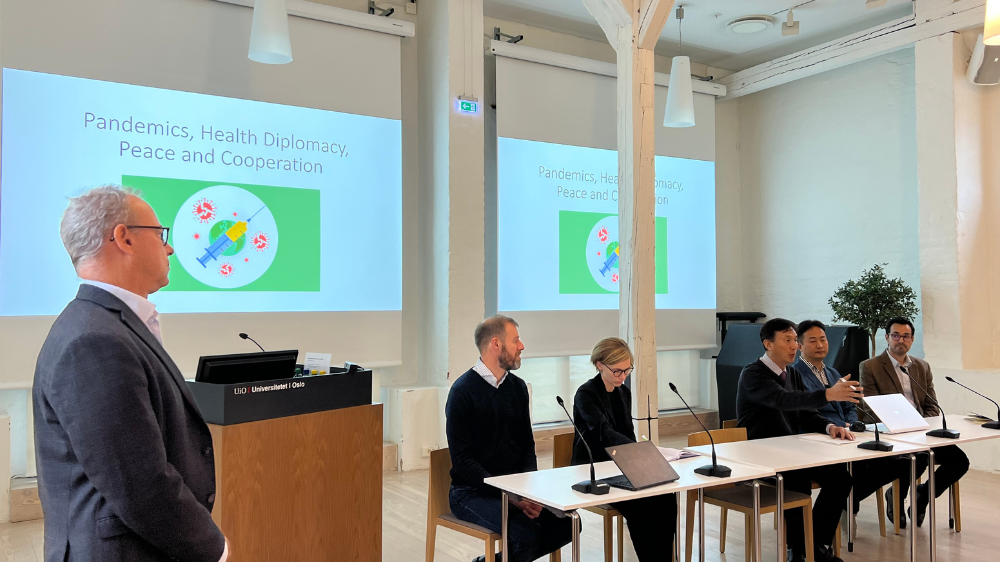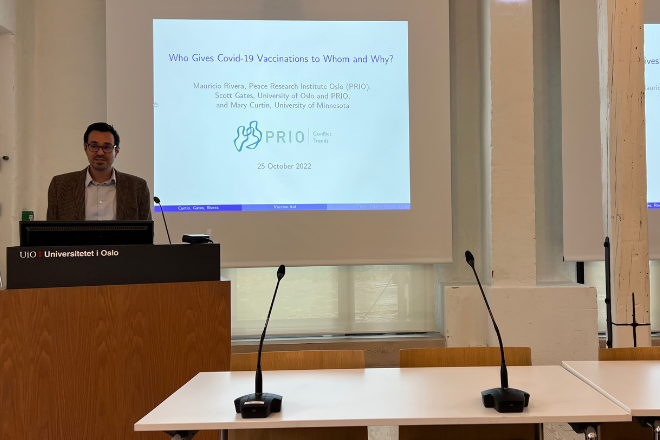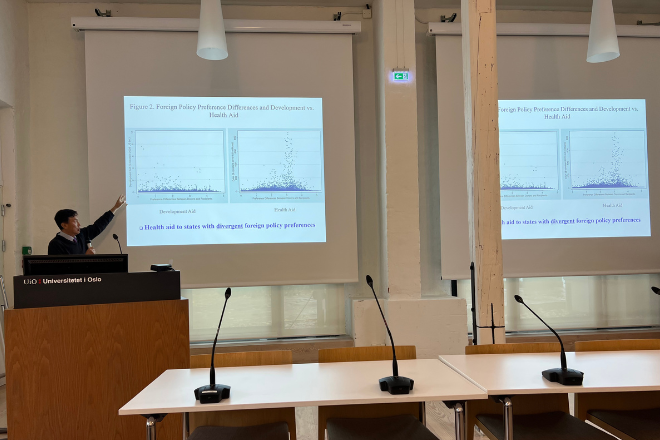Did you miss this seminar? Follow a short recap of the presentations provided by national and international speakers.

Panel discussion with the audience and moderator, Scott Gates; Photo: Gabriella Rodriguez
On October 25, the Centre for Global Health (CGH) at the University of Oslo (UiO) was pleased to host a seminar on Pandemics, Health Diplomacy, Peace and Cooperation with Policy & Peace Crosscutting Theme leader, Scott Gates. The research presented at the seminar is funded by the Korea Foundation, the Norwegian Ministry of Foreign Affairs, the Peace Research Institute Oslo (PRIO), and the Centre for Global Health, UiO. The event was not streamed. Below, we offer some main concluding remarks from the presentations, and will share the research papers as soon as they are published.
Dr. Mauricio Rivera, senior researcher from the Peace Research Institute Oslo (PRIO) presented his work in progress with co-authors Scott Gates (UiO and PRIO) and Mary Curtin, University of Minnesota on 'Who Gives COVID-19 Vaccinations to Whom and Why'. The co-authors conclude:
- The differences in vaccine aid between major and minor donors;
- Major donors' vaccination aid has been generally aimed at fighting the pandemic, focused on receiving countries' needs
- Vaccine donations follow COVID-19 deaths
- Poorer countries tend to be recipients of vaccine donations
- Geopolitics and strategic considerations play an important role
- COVAX tends to give to more democratic countries and China to more authoritarian countries
- China is strongly motivated by expanding its influence where it already has influence, namely Belt and Road
- Bilateral aid in general allocated to neighbors

In his ongoing research paper, 'Assessing the Impact of Aid on Public Health expenditure in developing countries,' Professor Youngwan Kim from Sogang University shared that his findings suggest the following:
- Aid could lead to reductions in health expenditure when the donor community's surveillance focuses more on risky or untrustworthy recipients and indirectly creates incentives for good recipients to divert funding away from the health sector;
- The limitation is that there is a risk of endogenous problems due to the unexpected influence of foreign aid. Countries with lower medical expenses can receive higher amounts of foreign aid;
- And the reduction in democratic, efficient, and stable government expenditure already reduces relatively high levels of social welfare expenditure. In other words, the importance of the surveillance gap in the international donor community was found.

Lastly, Dr. Wonjae Hwang from the University of Tennessee tentatively concluded in his ongoing research paper 'Does Health Aid generate positive effects on the relationship between a donor and a recipient? Health Aid and Public Support,' that:
- there is growing importance of health aid/diplomacy in the great power competition;
- public opinion is sensitive to health aid, particularly when health problems are severe;
- exploring underlying theoretical mechanisms on the positive link between health aid and public support is necessary.







